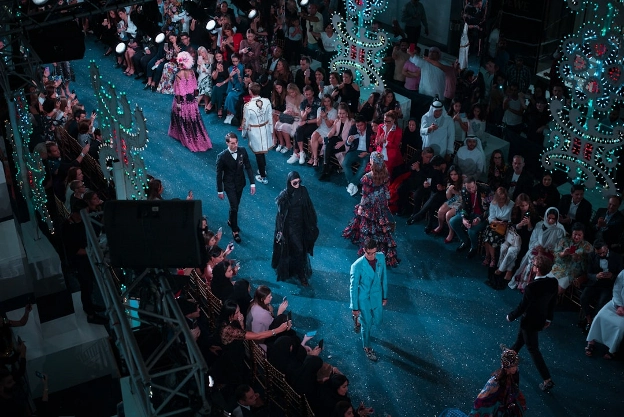Sustainable Fashion Pioneers: Impactful Brand

Table of Contents
-
The Rise of Sustainable Fashion: A Global Movement
-
Decoding Sustainability: What Makes a Brand Truly Eco-Friendly?
-
Trailblazers in the Industry: Brands Leading the Change
-
The Consumer Shift: How Awareness is Changing Buying Habits
-
Beyond the Tag: The Long-Term Impact of Choosing Sustainable Fashion
-
Explore the revolution of the fashion industry through the lens of sustainability, highlighting brands that are making a significant impact.
The Rise of Sustainable Fashion: A Global Movement
The fashion industry is witnessing a transformative era where sustainability has transitioned from a niche interest to a global movement. Driven by the recognition of fashion's significant environmental footprint, both new and established brands are redefining the ethos of style to include responsibility towards the planet. This surge is not merely a trend but a collective consciousness that calls for durable, ethical, and eco-friendly practices.
Consumers worldwide are increasingly demanding transparency and environmental stewardship from fashion labels. This shift has spurred the rise of numerous initiatives and coalitions to promote sustainable practices across the supply chain. From sourcing organic materials to implementing zero-waste production techniques, the industry is evolving to meet the challenges of the 21st century.
Decoding Sustainability: What Makes a Brand Truly Eco-Friendly?
Sustainability in fashion encompasses a multitude of practices and criteria. It is not just about using organic cotton or recycled polyester; it's also about ethical labor practices, energy-efficient production, water conservation, and the lifespan of the product. A truly eco-friendly brand commits to a holistic approach that considers the full lifecycle impact of its products, including design, sourcing, manufacturing, distribution, and eventual disposal or recycling.
Transparency is another key factor. Brands that are genuine in their commitment to sustainability are often open about their supply chain processes and actively engage in third-party certifications to validate their claims. This level of accountability is crucial in distinguishing legitimately sustainable brands from those that merely engage in 'greenwashing'.
Trailblazers in the Industry: Brands Leading the Change
Several brands have emerged as leaders in the sustainable fashion movement, setting benchmarks for others to follow. These pioneers are often characterized by their innovative use of materials, such as turning plastic bottles into fabric or using agricultural waste to create biodegradable textiles. They also tend to invest in fair trade practices and strive to create a positive impact on the communities involved in their production processes.
Some of these progressive brands include Patagonia, known for its commitment to environmental activism; Stella McCartney, which has been a champion of animal rights and eco-friendly materials; and Eileen Fisher, which emphasizes ethical manufacturing and the reuse of garments. These brands are not only influential within the fashion industry but also help raise consumer awareness about the importance of sustainable choices.
The Consumer Shift: How Awareness is Changing Buying Habits
The rise of social media and increased access to information has led to a more informed and conscientious consumer base. Shoppers are no longer looking solely for the latest trends; they are also considering the ethical and environmental impacts of their purchases. This shift is evident in the growing popularity of second-hand markets, clothing swaps, and the rise of 'slow fashion' - a movement that encourages buying fewer, higher-quality items that last longer.
Brands are responding to this consumer shift by offering more sustainable options and educating customers about the benefits of these choices. The integration of sustainability into the core values of fashion companies is becoming a competitive advantage, as more consumers are willing to invest in products that align with their personal beliefs and values.
Beyond the Tag: The Long-Term Impact of Choosing Sustainable Fashion
Choosing sustainable fashion goes beyond the immediate gratification of owning a new outfit; it's an investment in the future of our planet. The long-term impact of such choices can be profound, as they contribute to the reduction of waste, pollution, and the consumption of natural resources. By supporting sustainable brands, consumers play an active role in promoting a more circular economy, where products are designed to be reused, recycled, or repurposed.
The cumulative effect of individual choices can lead to significant changes in the industry. As more people opt for sustainable fashion, it pressures traditional brands to adopt more responsible practices, potentially leading to widespread improvements in environmental and social standards. Ultimately, the power of change lies in the hands of the consumer, and every sustainable purchase is a step towards a more equitable and eco-conscious world.
Table of Contents
-
The Rise of Sustainable Fashion: A Global Movement
-
Decoding Sustainability: What Makes a Brand Truly Eco-Friendly?
-
Trailblazers in the Industry: Brands Leading the Change
-
The Consumer Shift: How Awareness is Changing Buying Habits
-
Beyond the Tag: The Long-Term Impact of Choosing Sustainable Fashion
-


